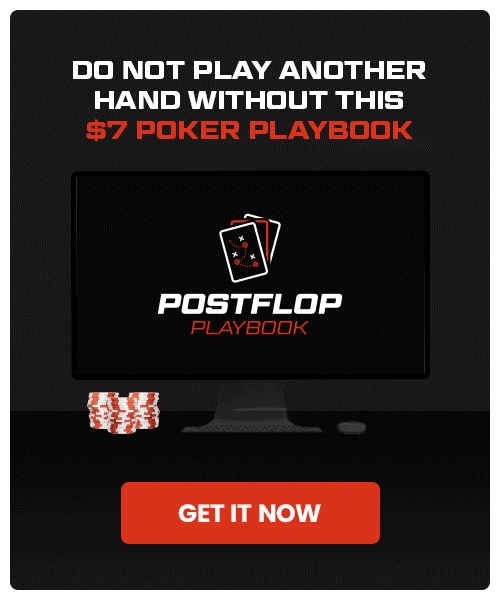Why Are Most Poker Players Wimpy Bluffers?
(Photo: PartyPoker)
In part 1 of this article series, I told you about the Honesty Principle.
The Honesty Principle: As a whole, the poker community bluffs much less than it should.
In part 2, you read about the poker artificial intelligence Libratus and its uncanny ability to bluff at balanced frequencies.
It should be fairly clear at this point that, even at the highest level, it is practically impossible for human players to maintain a perfectly balanced strategy between honesty and dishonesty while playing Hold’em.
Inevitably, this means that every player’s betting strategy is either on the side of value-heavy or the side of bluff-heavy. However, this does not explain why the poker population ends up being biased towards the former versus the latter.
Why is it that poker players (as a whole) bet disproportionally more with their strong holdings and strong draws rather than their total air and marginal bluffs?
One possible explanation is that the player pool is very mistrusting as a group.
When in doubt, it is hard for humans to believe something before we see it. There are very good evolutionary reasons for that. For instance, excess gullibility could get us in trouble and in extreme cases could even get us killed. Suspicion is deeply ingrained in us to keep us away from dangers. This is a biological fact that no poker player can escape from.
At the core, we all have (at least some) “trust issues” and an instinctive desire to look our opponents up more than we should. Correct or not, this collective “table sheriff” mentality, has the inevitable consequence of quickly taking down the erratic “over-bluffers,” significantly reducing their numbers at the table.
Metaphorically speaking, in the poker habitat, many players who over-bluff are at the bottom of the food chain and tend to go “extinct” first, even before their overly passive and overly timid counterparts, who are also being preyed upon. This means that it is unwise to make to habitually make big calls against the majority of opponents, as they are likely not as “dishonest” as we may think.
Evidence of the Honesty Principle
Another more subtle way to identify our bias towards honesty is to take a closer look at the action from pre-flop to the river.
For example, it is safe to say that most people will not fold AA before the flop while they probably would fold a hand like 72o. A raise by Bob is more likely to be AA than to be 72o. This does not mean that Bob has either of these hands, but if he did, it is probably the former. That is already a small bias towards value and honesty.
Similarly, as we go down the hierarchy of hands (in terms of their profitability) we see that people tend to prefer to be involved with profitable hands versus unprofitable ones. This accumulation of small biases results in a considerable one.
Moving to post-flop, people continue those same tendencies. A good hand will almost always give the players confidence to bet, while a bad one may not, especially against multiple opponents. A hand like 55 starts to feel a lot like 72 on a flop of Q♣ J♣ T♥ against 3 opponents. Since all three of these broadway cards are typically highly played, a measly pair of fives is unlikely to be the best hand here.
The bias propagates from one street to the next. A great way to test the theory is to watch any unedited game of poker where you can see the hole cards (like a Live at the Bike or Poker Night in America stream). Regardless of the level of the players, one very interesting and fairly obvious tendency you will likely observe is the following:
- Mostly profitable/playable hands will see the flop.
- Mostly hands that improved on the flop will see the turn.
- And so on.
By all means, people will deviate from these tendencies from time to time and at various frequencies, in the same way that Bob decided to make a play with T2s in part 1 of this series. That being said, exceptions do not disprove the rule. If anything, they are strong evidence of its existence!
An Important Caveat
Of course, it goes without saying that the above theory addresses the issue of mistrust in a vacuum and for the entire poker population as a whole, without taking into account the particular reads for any player involved in the hand.
In reality, every situation is unique and it needs to be addressed as such. That being said, one needs to think twice before they ignore the Honesty Principle at their local game, especially if they play at low to mid stakes.
Once again, televised highlights of creative and bold bluffs, although very entertaining, are far from being representative of what is really happening inside most card-rooms around the country, where the majority of recreational players bluff less than optimal and yet bluff-catch more than they should in constant fear of getting bluffed off the best hand themselves. A paradoxical behavior which can be summarized by the following caricature:
Alice gets bluffed by Bob sometimes. Bob always pays Alice off to make sure that never happens to him.
If you want to read more from me, check out my article Stop Letting Your Poker Ego Cost You Money & Happiness.
Ready to take the guesswork out of your bluffing strategy? Learn an easy-to-use bluffing strategy that wins when you get the $7 Postflop Playbook.
Do Not Play Another Hand Without This $7 Tool
With such a low price tag, the $7 Postflop Playbook is a no-brainer if you want to nail down your fundamentals…
…and build a bigger bankroll.
